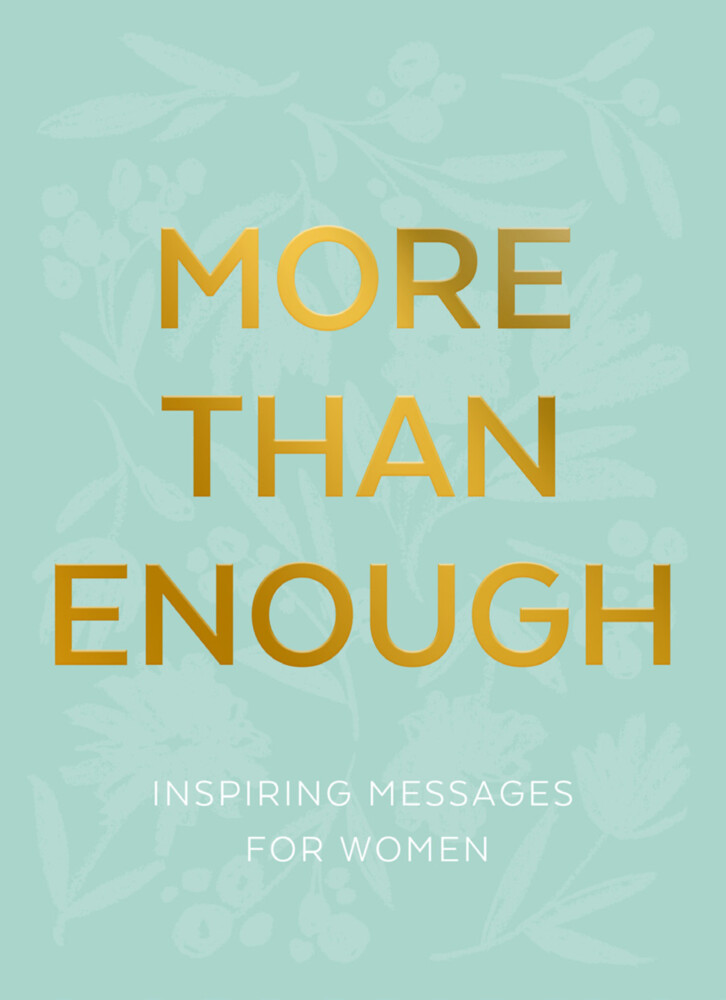We’ve all felt the gut-wrenching feeling that materializes at different periods of life for a variety of reasons. It’s the thought that causes your stomach to sink and tears to fall: “I am not enough.” Laurel C. Day shares her experiences with the concept of “not enough-ness” and her journey to accepting that God’s grace is the only way to bridge the gap between who we are and who we want to become.
I got called in to meet with my bishop after being in our new ward for just over two years. During that time we had faced some fairly significant life challenges, including the loss of my father, and as a result, I had not been the most engaged member of the ward. I hadn’t made much effort to get to know anyone and I often sat on the back row of Relief Society, too often letting myself slip out early. I was just struggling.
The appointment was slated for right after sacrament meeting, and it was while I was taking the sacrament that a feeling of dread came over me. I suddenly felt that I was being called to serve in Relief Society, specifically in the presidency.
Given my lack of connections in the ward as well as the space I had been in, that seemed to me to be a really bad idea. So I spent the time during the sacrament doing what any faithful woman would do: bartering with the Lord about all the reasons I was better suited for a calling in the Young Women organization.
When my husband and I sat down to meet with our bishop, my heart was pounding. As the bishop extended the call, I just started to weep. Not cry: WEEP—the kind of weeping where you cannot speak.
Knowing that I have a fairly demanding full-time job, and clearly seeing I was not able to respond (I’m still not sure I ever actually said yes), my good bishop proceeded to say something like, “I know this probably seems overwhelming with your schedule and travels, and I even questioned this myself at first, but it has been made clear to me that you are the woman to serve in this calling at this time.”
When I could speak, all I was able to blurt out was: “I’m not nice enough to be a Relief Society president!” It was a moment of deep vulnerability, of feeling incapable of the task before me, and a time when I desperately needed validation and reassurance that I was indeed up to the job. And my good husband simply responded with, “Well … you have other gifts.”
(Thank you, husband. Yes, I guess there’s that.)
Simply put, I did not feel up to the challenge or the responsibility.
But as a general rule, the idea of “being enough,” or rather “not being enough,” is not something that has resonated with me. And it’s not because I am not keenly aware of my inadequacies—clearly, I realize I’m not nice enough to be a Relief Society president—but rather it’s that I have mostly subscribed to the thinking that my lack of “enough-ness” is simply a part of who I am. And if the Lord created me and if He loves me (both of which I believe to be true), then that lack of “enough-ness” is nothing for me to feel overwhelmed by or ashamed of.
I think there are reasons why I have felt this way.
I had a Primary teacher when I was younger who somehow convinced me I was Heavenly Father’s favorite. I believed that deeply. So much so that there is a story in our family about a period of time when, as a young girl, I would go around our home letting my parents and siblings know that I was getting ready to say my prayers. Naturally, I assumed that Heavenly Father could only listen to one prayer at a time and, well, if His favorite was going to be praying, was there really a question about which prayer He would be listening to? So I thought I was doing them a favor by giving them a heads-up.
That belief probably lasted until about the sixth grade, when middle school beat my divine confidence right out of me, as middle school is prone to do for so many of us. But even through teenage years of insecurities, my parents and my patriarchal blessing had me fairly convinced that I was somebody and had unique and special gifts. And so, while I was aware of what I couldn’t do and the talents I didn’t have, I always still believed that I was who I was supposed to be—which must have meant I was “enough.”
And then perhaps because I didn’t get married until I was forty-one and also didn’t have children of my own, and thus never went through the overwhelming stage of being a mom, and consequently wasn’t comparing myself to other moms, and therefore wasn’t feeling inferior in any of those regards, I never found myself relating to so many of the things I heard women say about “not being enough.” (There is something oddly nice about only comparing yourself to the kind of mom you’re pretty sure you would have been but don’t ever have to find out you weren’t.)
While I was being disillusioned in my “I-don’t-get-it-ness” on this topic, I felt as if the Spirit said, “Oh, Laurel, you know that thing you struggle with that you don’t talk about? That thing that makes you feel like you can’t get your act together and you’re not strong enough? That thing that makes you feel like you’re living beneath your potential?”
To which I said: “Yes. I know that thing … but we don’t really talk about it, remember?”
To which I could imagine the Spirit saying, “Sure. But still. You know that thing? … That is what it is to feel like you’re not enough.”
To which I said, “Ah. I get it.”
So. I get it. I do. I had been putting different words to it. But through the process of studying, I came to understand that I clearly know this feeling—this feeling that we are just not up to the tasks and responsibilities and callings before us, the feeling of coming up short. And I for sure understand the feeling that we are incapable of making the changes we know we need to and that somehow that lack of capacity makes us lesser than other people who seem capable of making change.
What about you? What’s your “thing” that makes you feel most “not enough”? Chances are it has come to you quickly.
Now—can I share the awful truth?
We. Aren’t. Enough.
We simply aren’t enough for all the needs of our family.
We aren’t enough for the people we’ve been called to serve.
I think it’s safe to say we aren’t enough for any of the things we’ve been put here on this earth to do.
And we certainly do not have enough of what we need to make the changes we often feel compelled to make in this life.
We. Are. Not. Enough. If we try to do any of these things on our own, without the Savior we are being encouraged to seek.
And so these feelings of “not enough” are both normal and a gift. And thankfully, we also have the promise of being enough in and through and because of our Savior. …
My dear friends, when our desire is that we are enough when we are willing to show up and give some effort, even if it seems so small, we are doing enough. We have to trust that we are.
Because the truth is that the space between our mortal inadequacy and His call for our lives can and WILL be filled. He makes it ENOUGH.
I love this passage in Exodus 36. The Israelites have been commanded to build a tabernacle—not an easy task. But look at these three verses:
“And they [the wise men whom the Lord had called to lead the building of the tabernacle] spake unto Moses, saying, The people bring much more than enough for the service of the work, which the Lord commanded to make. And Moses gave commandment, and they caused it to be proclaimed throughout the camp, saying, Let neither man nor woman make any more work for the offering of the sanctuary. So the people were restrained from bringing. For the stuff they had was sufficient for all the work to make it, and too much” (vv. 5–7).
Do you see it? More importantly, do you feel it? When we are in partnership with the Lord—when we are responding to the call He has extended to us to serve and teach and lead and even to change, the stuff we have is sufficient and too much.
But how? How is this possible?
In his second epistle to the Corinthians, Paul says, “Not that we are sufficient of ourselves to think any thing as of ourselves; but our sufficiency is of God” (2 Corinthians 3:5).
The stuff we have is sufficient and too much because our sufficiency is of God. …
Without Him, we are not enough. But with Him and through His grace, we are exactly enough. In fact, we are more than enough. Or as the scripture said, “too much.”
His grace is sufficient—His grace is ENOUGH.
Again to the Corinthians, Paul taught: “And [the Lord] said unto me, My grace is sufficient for thee: for my strength is made perfect in weakness” (2 Corinthians 12:9).
His grace fills in the gaps in remarkable ways; ways that I promise each of us have experienced—whether we have recognized it as such or not. And when He does that for us, it is a beautiful thing to behold and to feel.
That thing you identified earlier? What would you need God to do in your life in order for you to be ENOUGH for the call or the challenge you identified? And do you believe that He can and will? If you don’t, pray for that. Don’t pray for the help just yet. Pray that you can believe that He can and will.
Are you familiar with the story in the Old Testament of the Ammonites coming to attack the kingdom of Judah? It is found in 2 Chronicles 20.
The king, Jehoshaphat, was afraid when he heard the Ammonites were coming, and he invited all the people in the kingdom to fast and gather together to pray to the Lord for help. Jehoshaphat stood in the midst of the congregation and cried unto the Lord, “O our God, … we have no might against this great company that cometh against us; neither know we what to do: but our eyes are upon thee. And all Judah stood before the Lord, with their little ones, their wives, and their children. Then upon Jahaziel … , a Levite … , came the Spirit of the Lord in the midst of the congregation; and he said, … Thus saith the Lord unto you, Be not afraid nor dismayed by reason of this great multitude; for the battle is not yours, but God’s. … Ye shall not need to fight in this battle: set yourselves, stand ye still, and see the salvation of the Lord with you” (vv. 12–15, 17).
And then the Lord did just that. They prepared for battle and, instead of having to fight, the Lord sent other armies to come upon the Ammonites and destroy them.
But whether they fought or not was not the point. The Lord took what they did have to offer and He made them enough. And again, that’s what He does for us.
Think about the counsel He gave them and apply it to your own “not enough-ness”:
“Set yourselves.” Or in other words, show up with what you have.
“Stand still.” Or in other words, don’t get overwhelmed. Stand still and trust Him.
“And see the Lord’s grace work in you.” I love that it doesn’t say “look for.” The Lord said, “SEE the Lord’s grace work in you.” You will see it because it WILL.
Remember, grace, provided in and through Jesus Christ, fills the gap between our ability and what we’ve been called to do. We were created to be all that He needs and wants us to be. We are capable of being enough in all we are asked to do and in every weakness we want to overcome.
With Jesus, whom we seek, you have enough and you ARE enough. Yea verily, you are more than enough—even “too much.”
That is my promise. That is HIS promise.
More than Enough: Inspiring Messages for Women
These are marvelous truth. However, when we think about all that we're meant to do and become to be worthy of receiving these blessings, we may sometimes feel like we're not living up to God's expectations for us. We may even think we're the only ones who feel that way—certainly our friends and family have it figured out, even if we don't.
This book is a collection of thoughts on our divine nature and destiny from women of diverse walks of life. In it, you will find stories of hope and strategies for healing, reminding us that Heavenly Father and Jesus Christ love us perfectly as we are. In our trials, in our difficulties, in our weakness—and through the grace of God—we are more than enough.



